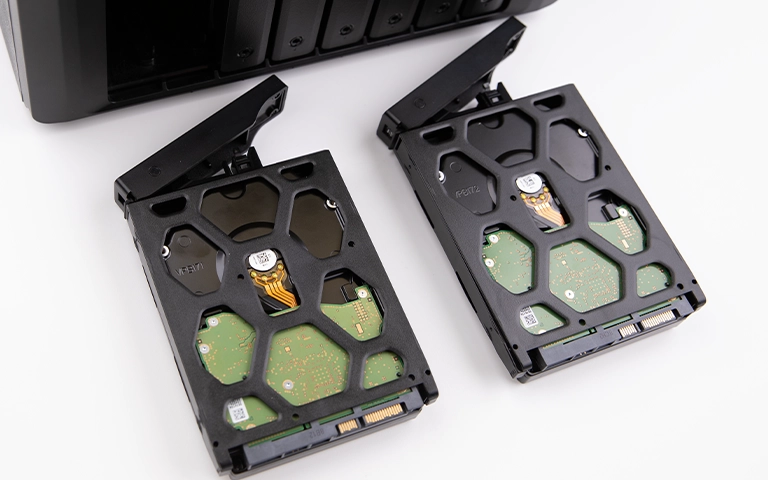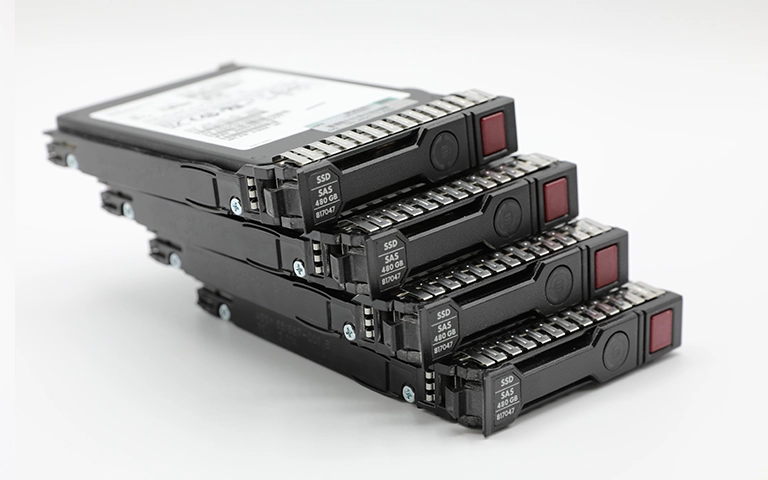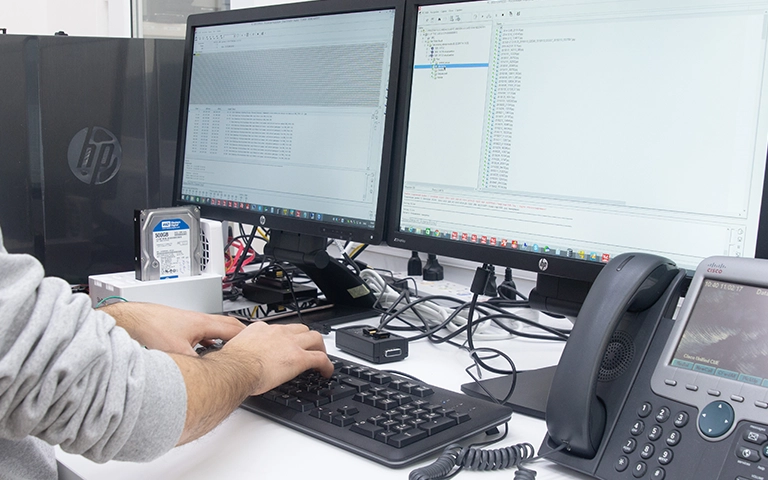In today’s digital environment, malware, which malicious code designed to damage, steal, or disable, poses a serious threat to business-critical data.
Whether targeting individual users or complex IT infrastructures, malware attacks can lead to the corruption or loss of data stored on servers, NAS systems, and RAID arrays.
For organizations relying on uninterrupted access to information, understanding these threats is essential.

What is Malware?
Malware is a general term for malicious code intentionally developed to compromise, corrupt, or destroy digital environments. It includes ransomware, trojans, viruses, keyloggers, rootkits, and more.
These threats infiltrate storage systems, manipulate access, and, in many cases, cause complete data loss.
At RAID Recovery Services, we specialize in recovering data from RAID and enterprise systems impacted by malicious attacks, even in cases where traditional IT defense mechanisms fail.
Why Malware Targets RAID Systems
Unlike random infections, modern malware campaigns often involve reconnaissance. Attackers study an organization’s network and storage setup to identify vulnerabilities.
RAID arrays and NAS systems are particularly attractive targets because they store large volumes of critical data.
Common Goals Behind Malware Attacks
Financial Extortion
Ransomware encrypts data and demands payment. Attackers frequently delete snapshots, backup images, and parity data, eliminating standard restoration paths.
Operational Disruption
Some threats are engineered to corrupt file systems, reformat RAID partitions, or destroy metadata that defines RAID configurations. These disruptions result in significant downtime and loss of access.
Surveillance and Espionage
Stealth malware may monitor and exfiltrate data silently over long periods, targeting trade secrets or customer databases.
Hardware Exploitation
Certain strains turn storage nodes into tools for larger criminal networks, using them for denial-of-service attacks or unauthorized computational tasks like cryptomining.

Types of Malware That Lead to Data Loss
Over the years, our engineering team has handled thousands of enterprise cases involving different forms of malware.
Some of the most destructive types include:
Ransomware: Encrypts data on RAID volumes and often disables access to backups.
Trojans: Pretend to be legitimate tools but open hidden pathways for infiltration or further attacks.
Viruses and Worms: Spread across networks, causing corruption in system files, boot records, and partition tables.
Spyware and Keyloggers: Capture login credentials and facilitate unauthorized access to restricted volumes.
Rootkits: Designed to hide unauthorized activity and often damage core system processes and access logs.
Fileless Threats: Operate directly in memory, leaving minimal traces and evading detection.
Logic Bombs: Trigger based on time or specific events, executing destructive actions that affect file structures and stored data.
How Malware Infects Enterprise Infrastructure
Phishing and Social Engineering
A single email or message can trick an employee into activating malware that spreads across the entire system.
Vulnerability Exploits
Attackers often use known flaws in unpatched systems to gain access to servers or RAID controllers.
Removable Devices
External drives or USB sticks can be entry points for threats, especially if plugged into unmonitored workstations.
Compromised Web Resources
Even visiting infected websites can initiate downloads that lead to deeper system compromise.

Malware That Deletes Backups Before Locking Files
A disturbing trend we’ve observed involves attackers first identifying and eliminating recovery paths. They delete:
Network-attached backup directories
Shadow copies
RAID rebuild logs
NAS snapshots
Only then do they activate the encryption process. This leaves organizations with no option for internal recovery.
We have helped businesses restore data from these situations by manually reconstructing RAID structures and rebuilding file systems from deep-level sector analysis.
How to Know If You’ve Been Infected
If you notice any of the following, act immediately:
System running unusually slow or unresponsive
Sudden appearance of encrypted file extensions
Unusual login behavior or changes to shared drive access
Entire RAID arrays becoming unreadable or missing
Boot errors, file permission issues, or crashing storage controllers
Avoid further actions like restarts or manual rebuilds, as they may overwrite key recovery points.
Steps to Take if Malware Hits Your RAID
Isolate the infected system from the network to prevent spread or further damage.
Manual rebuilds or initialization can overwrite recoverable data structures.
Do not remove or reconfigure drives from the RAID setup. Our engineers need original drive order and contents to recover the array accurately.
Our cleanroom and secure imaging processes allow us to extract raw data and reconstruct RAID environments, even from encrypted or corrupted drives.
Preventing Malware-Driven Data Loss
Use endpoint protection and active threat monitoring
Apply regular patches and firmware updates
Limit access to storage systems using strong authentication protocols
Enable off-site, immutable backups that malware cannot reach
Educate team members on phishing awareness
Segment networks and isolate backup systems from production access
Final Thoughts
Malware is evolving faster than ever. Prevention is critical, but when protection fails, RAID Recovery Services is your last line of defense. Our team recovers data from malware-infected RAID arrays, NAS units, and enterprise systems using proven techniques and proprietary tools.
If your organization faces data loss due to a cyberattack or malicious activity, contact us today. Rapid response improves the likelihood of a successful recovery.

Frequently Asked Questions
Can data be recovered from ransomware-infected RAID arrays?
Yes. We have extensive experience recovering from ransomware-infected RAID configurations by rebuilding arrays and restoring encrypted sectors.
What if my backups were deleted?
We have successfully recovered data in cases where all backups were destroyed, relying on deep sector recovery and forensic-level reconstruction.
Can malware affect RAID controllers directly?
Yes. Some threats corrupt firmware or erase metadata on controller-managed arrays. We can often recover data through manual parity rebuilds.
Should I pay the ransom?
We strongly advise against it. Payment does not guarantee data recovery. In most cases, professional recovery is the safer, more secure option.